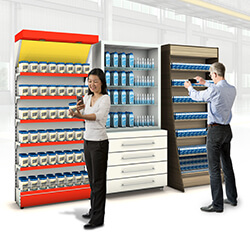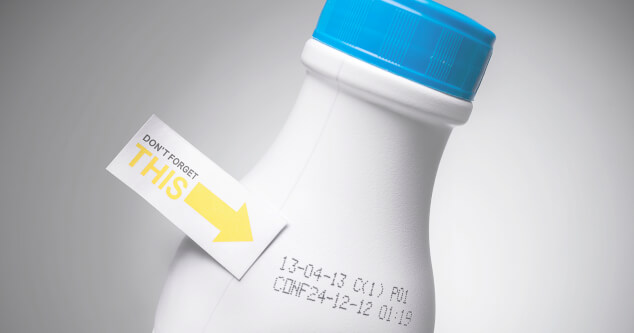Six challenges for brand protection
Publicerat 19 november 2019 i Brand Protection
Here are six key challenges related to brand protection:
1. Compliance with legal directivesManufacturers must reduce health risks to consumers. For example, the last stage of the EU Falsified Medicines Directive recently came into force to fight counterfeit medicines and to ensure that the trade is rigorously controlled. Measures include tougher rules on the import of active pharmaceutical ingredients and stronger record keeping by wholesale distributors.
The ability to detect and correct a defective product before it’s shipped to the customer saves significant time and money, and helps avoid costly product recalls, production losses and even losses caused by court action. Brand damage (and financial losses) can be caused by enforced product recalls, product piracy and fraud.
Effective quality control in all production and packaging lines is crucial for trust in the brand. For example, serialisation and traceability can increase visibility; and inspection processes and quality control can benefit enormously from sophisticated automation. The pharmaceutical industry provides a model of how companies can adapt rapidly to new production technologies.
With issues such as drug counterfeiting, there’s a considerable demand for efficient and flexible serialisation at pharmaceutical companies along the entire supply chain.
Organisations need a full validation capability and an automated audit trail: i.e. a reliable and comprehensive quality control portfolio. This will optimise inspection services that support intelligent and reliable production processes and ultimately brand protection.
Pharmaceutical companies and others must comply with standards such as the UDI standard of the US Food and Drug Administration (FDA) and the European Medical Device Regulation (EUMDR). Key elements that demonstrate a solution provider's compliance and transparency capabilities include systems and tools for checking compliance with code quality; powerful readers for easy, fast and reliable decoding of 1D and 2D barcodes; inline and offline barcode verification; and label inspection solutions.

Meeting the challenges
These six challenges must be mastered today to build the factory of tomorrow. New technologies, such as smart robotics, artificial intelligence and vision systems, already offer powerful automation solutions. Technologies that guarantee a consistently high quality in production and sales are in great demand.Developing practical solutions
One example of a practical solution is Omron's innovative-Automation! concept: a fully integrated approach to machine automation, enriched with artificial intelligence for high-quality services. Its combination of speed by integration, intelligence and ease of use enables users to develop a transparent quality assurance system. Inspection efficiency is boosted by sensors (such as vision systems) combined with smart data management, to ensure that potential operational problems have a minimal impact on production.Conclusion
Brand protection can have a decisive influence on the economic success of a company. Many famous brands that failed to change with the times have since disappeared. Today’s businesses must therefore be completely focused on strengthening customer loyalty and gaining competitive strength. This can be achieved using modern automation technologies based on artificial intelligence and robotics.
